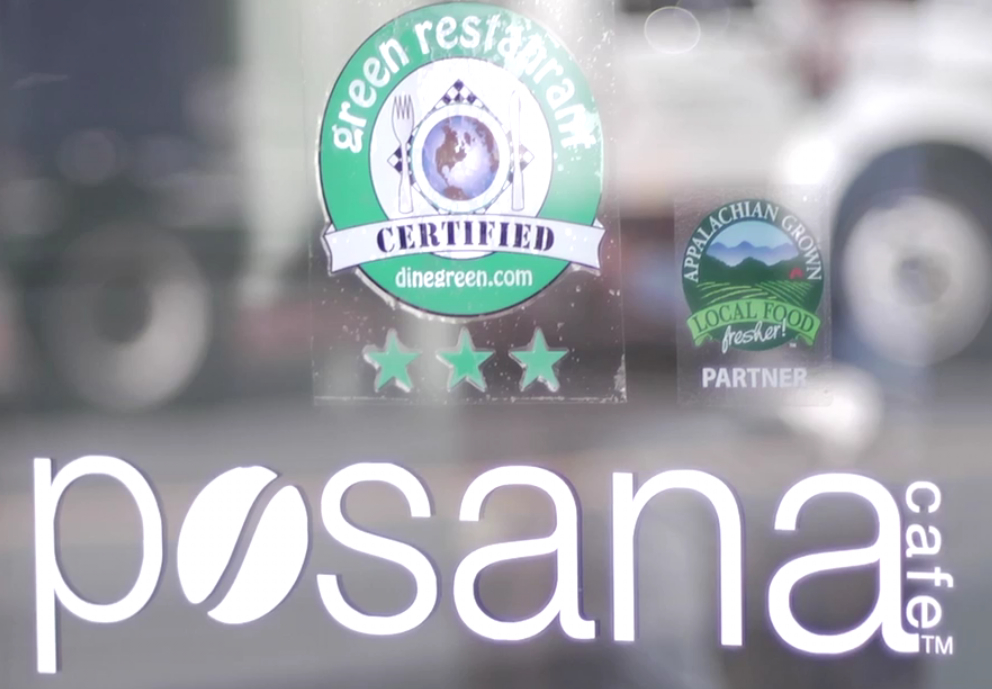Restaurants are some of the the most energy-intensive commercial buildings in the U.S., says the Energy Information Administration. Per square foot, through refrigeration, dishwashing, cooking and other necessary practices in the food industry, restaurants gobble up nearly three times the energy of the average commercial building.
With those statistics in mind, a number of Asheville restaurants are making significant investments in clean energy and green infrastructure. AIR-member restaurants are working together to install solar equipment, LED lighting and composting stations. And, through a green-restaurant certification program, they’re going even more in-depth, examining where their food is sourced, proper waste management practices and the proper use of (or natural substitutions for) chemicals.
Going green introduces a diverse set of challenges for each of the restaurants involved in the program. Randy Tally, co-owner of the Green Sage, was able to open his second location in south Asheville with a comprehensive green remodel of an empty restaurant. The Corner Kitchen, located in a 100-year-old historic home, has had to make incremental improvements while operating a busy restaurant. Corner Kitchen owner Kevin Westmoreland is pragmatic about the effort: “We’d like to think it’s the way everybody should do business,” he says. Going green creates positive change on multiple levels, Tally says. “It’s good for the community, good for the planet and good for our bottom line,” he says. It also will help Asheville become a major green-dining destination, one major goal of AIR.
The Blue Ridge Sustainability Institute, Sundance Power Systems, Corner Kitchen and AIR have partnered together to tell the green restaurant story with the help of an Asheville-based video production company, Industrious Productions:
You can learn more at BRSI’s next Green Mondays event spotlighting the Green Restaurants on Monday April 23, at 3 p.m. at the Asheville Chamber of Commerce.
The Green Restaurant Initiative is the result of a partnership between BRSI and AIR, along with the leadership of many restaurant owners in Asheville. Support from the North Carolina Green Business Fund and American Reinvestment and Recovery Act helped local restaurants leverage the impact of their investments in clean energy technology into a combined annual energy reduction of over three billion BTU’s, roughly the amount needed to fry 3 million hamburgers.
Green-certified restaurants in Asheville include: the French Broad Chocolate Lounge, Green Sage, HomeGrown, Neo Cantina, Posana Café, Tupelo Honey (downtown and south) and Luella’s BBQ. Other restaurants in the process of greening their operations include: the Green Sage South, Bouchon, Burgermeister’s, Corner Kitchen, Frankie Bones, Laughing Seed Café, Jack of the Wood, Rosetta’s Kitchen and Strada.



